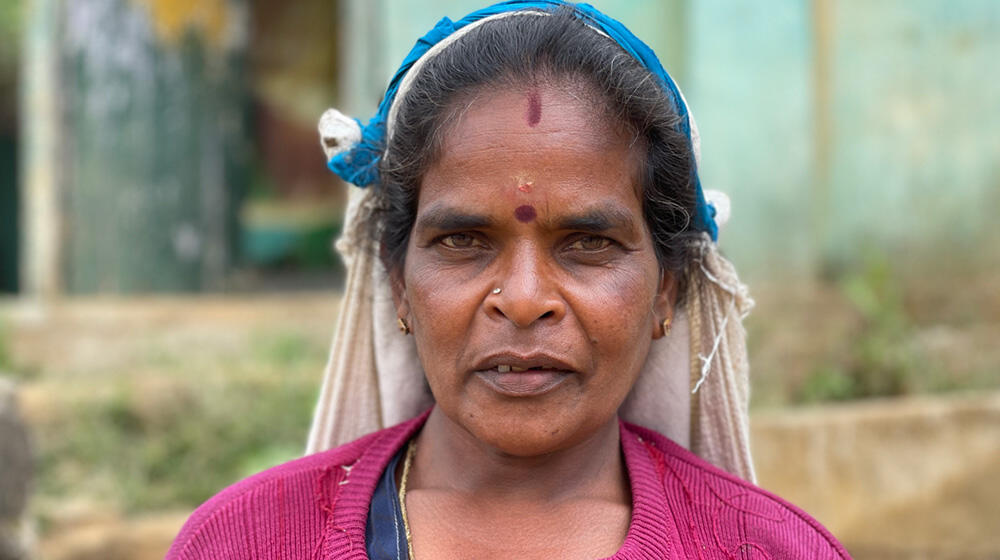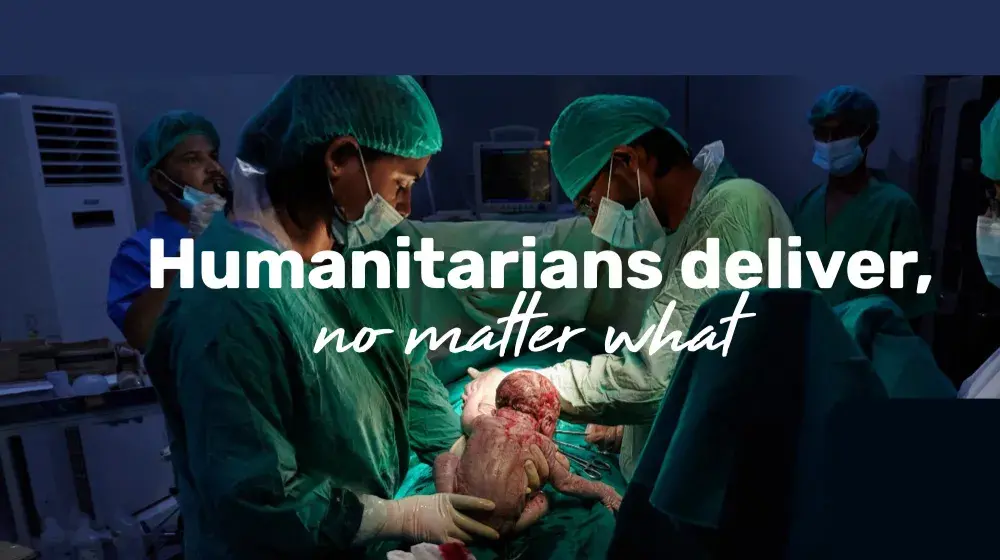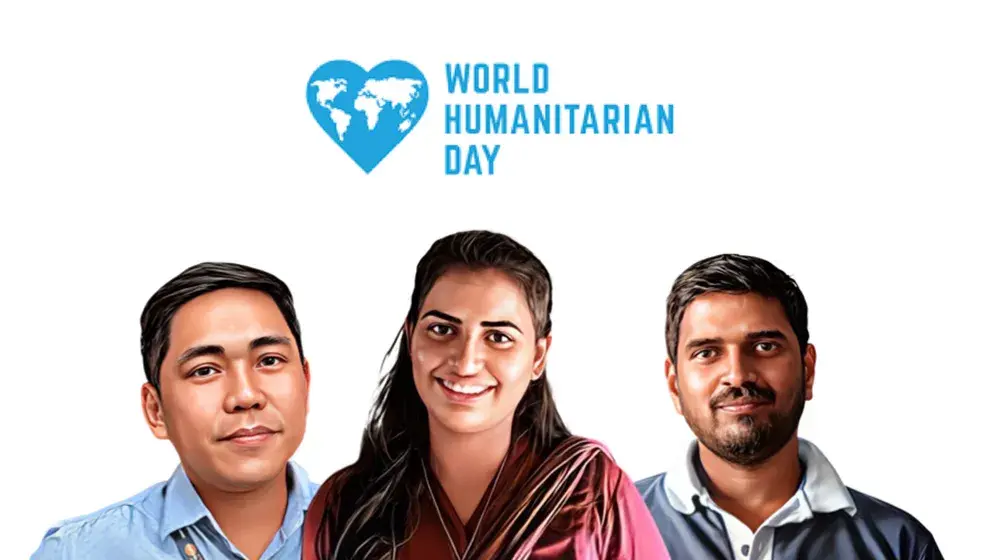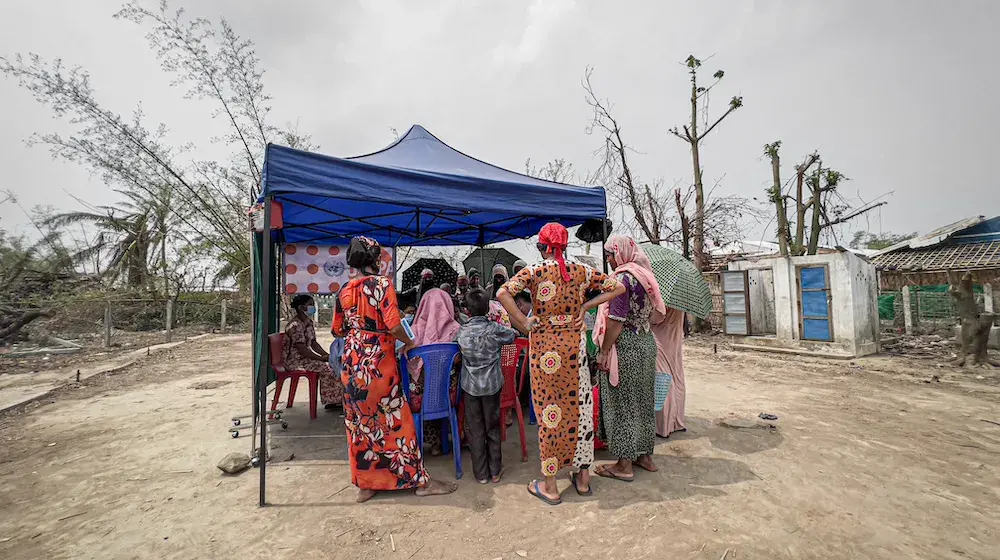The economic crisis in Sri Lanka has been a brutal extension of the economic downturn of COVID-19. The twin crises created conditions where the most marginalised people across the country were at even greater risk. With money scarce and fuel and food expensive, women’s needs for medicine or even clinic visits were left unmet during the prolonged emergency.
Things have improved since the acute stage of June 2022, but for many in Sri Lanka, life remains a daily struggle to survive. The UNFPA humanitarian response targeted groups like pregnant mothers, adolescent girls, older persons and persons with disabilities. The support, like Dignity Kits with essential hygiene and sanitary items to get them through the crisis or cash vouchers give people choices in difficult circumstances. The projects delivered through partners on the ground helps people maintain their dignity and make sure they can access healthcare even in the most remote communities.
This collection of portraits presents some of the frontline heroes delivering on UNFPA’s commitment to uphold the fundamental rights of women, girls and the most at-risk.
“With COVID-19 and the economic crisis, women are the most impacted and are struggling to make ends meet,” says Thisaranee. “Many women are only eating one meal a day and they face higher incidences of domestic violence.”
Thisaranee runs the Women’s Resource Center in Monaragala. She says the cases she encounters can sometimes be extreme. “Women sometimes want to consume poison to escape their suffering. What we are trying to do through the safe house is to save a human life.”
“Women sometimes want to consume poison to escape their suffering. What we are trying to do through the safe house is
save a human life.”
Through a group of 20 women, the centre reaches over 700 women every month in the community with information on how to stay safe and find collective economic opportunities. Thisaranee says the economic crisis has increased cases of violence in the community, so the peer outreach teams she coordinates teach women how to de-escalate and defuse tensions before violence erupts. “When we go to villages and work, we were not sure of how to respond to some of the issues that were coming up,” she says. “Through the UNFPA response, we were able to increase our knowledge and support women and communities.”
The centre acts as a shelter that has space for women and their children to seek refuge if they are facing violence. The safe house was funded as part of the humanitarian response to support the community by providing psychological support as well as a refuge. “Through this safe house, we conduct counselling and help them leave with a better mental state.”
The women at the centre work together on creating handicrafts products and shared market stalls and they exchange information about preventing gender-based violence. “Through village women’s committees, we found families that were struggling and trained them in building their own livelihoods.”
|
|
In the rural villages around Monaragala, women are facing increased violence in their homes as the economic crisis can increase domestic tensions. |
|
“When the global pandemic happened, the economy in these areas completely collapsed and was further compounded by the economic crisis,” Susila says. “With inflation, people can no longer afford meals. Parents cannot afford to send children to school. This has contributed to increasing problems between couples.”
Susila is a peer leader at the Women’s Resource Centre in Monaragala. “Women are facing a lot of issues in the community. The response to the crisis has given us knowledge to help ourselves and the women in our communities face their challenges.” |
|
|
|
The Women's Resource Center in Monaragala has built a network of motivated women looking out for each other and trained with skills to cope with cases of gender-based violence by opening discussions and presenting options. |
Dhammika is 21 and she has two children. She works in the tea plantations in Nuwara Eliya. She earns 1000 rupees ($1.50) a day only if she harvests over 20kg of tea leaves. The conditions are dangerous on steep muddy tracks with cold, windy conditions a regular part of the job. She got a Dignity Kit as part of the humanitarian response. She says it helped her with essential hygiene items that she otherwise couldn’t afford. Conditions in the tea plantation workers' housing often lack adequate clean water or toilet facilities, so Dhammika says it’s not easy raising two children on the estates. She’s part of a community network through the daycare centre her children attend while she’s working.
|
|
|
| Without adequate clothing, menstrual supplies and hygiene items, women and girls may be unable to access basic services, including humanitarian aid. That’s why UNFPA distributes its trademark Dignity Kits during disasters, to reduce vulnerability and connect women and girls to information, support and services. Dignity Kits contain underwear, basic clothing, sanitary napkins, toothbrushes, toothpaste, soap and laundry powder, as well as information on the services that are available and how to access them. | |
|
|
|
|
|
|
|
|
|
| Shanmugam Shanthi works as a Child Development Officer in the Concordia Estate. Life for children on the tea plantations is hard. Itinerant communities with informal housing and parents often absent picking tea, creates a confluence of risks for young people. Shanmugam works at a small school and daycare facility where mothers can leave their children when they go off to work. The school is also a gateway into the community to spot mothers who might need additional support. Shanmugam helped UNFPA identify at-risk mothers in the community and get dignity kits for them. The kits are an opening for women to talk about the issues they are facing and where to get additional support. | |
|
|
|
|
|
Chandralatha is from Galle. She is 75 years old and during the crisis she received a dignity kit that was specially adapted for older people. In an economy when many earn less than 400 rupees/1.2 usd a day, the contents of the kit can cost up to 19,000 rupees depending on the content and contain items most older people could not afford. She described her relief at having clean white sheets from the kit when she was admitted to the hospital earlier this year. Receiving the kit was also the first time in her life that she ever owned her own towel.
|
|
|
Chaminda is a caseworker with HelpAge. He keeps track of all the older people in the Galle district. During the crisis HelpAge delivered more than 2,600 kits to older people. He says there were many cases of older people being abandoned on the streets by relatives who couldn’t afford another mouth to feed. HelpAge offers support to older people during the crisis and he says the adapted dignity kit gives them an opportunity to connect with people who might otherwise be isolated.
|
|
|
|
|
|
Shivakumar works with the Family Planning Association of Sri Lanka to organise sessions about healthy pregnancies and sexual and reproductive health for women and girls in the high country tea plantations of Nuwara Eliya. Women and girls with little education work in tough conditions with neither food nor financial security. He conducts information sessions in multiple languages and makes women and girls feel comfortable so they can share their experiences with midwives and other members of the family planning team. READ MORE
"Their main concern is just daily survival so health matters are not their priority.”
-Shivakumar, Family Planning Association of Sri Lanka
|
|
|
|
|
|
Angalika Kumari is Counselor working to support women and girls in Nuwara Eliya. She leads information sessions with teenage girls and pregnant mothers to help them access sexual and reproductive health services. She leads the sessions in Sinhalese and in Tamil, and handles taboo subjects like virginity, sex, and relationships with humour and trusted big sister energy. She says gender-based violence is a big problem in the plantations where she works. Her workshops always include the numbers girls can call to get protection from gender-based violence.
|
|
|
|
|
|
|
|
"With this economic crisis within the country, many women have lost their jobs." Chandrathilaka says. "Some of them have lost their small businesses. They are dealing with the high cost of raw materials. There are lots of connections in between them; there are issues within the family, maybe separation, sometimes domestic violence. that has a big impact on their lives." Chandrathilaka works at the Women’s Resource Centre in Kandy. The centre is a key partner to deliver a range of support for women and marginalised groups in the community. From women’s collectives that promote economic empowerment to a multi-year school for children with disabilities, the centre has been driven by the needs of its members.
"Many women come to us looking for services for economic factors. Gender-based violence is not isolated, it's always linked with economic and financial issues."
-Chandrathilaka, Women’s Resource Centre, Kandy
|
|
|
| Mihiri Sulochani Herath is a Montessori teacher for early childhood education in Kandy. She’s also peer leader at the Women’s Resource Centre. As part of the humanitarian response to the economic crisis she and her peers have been stepping up the pace of conversations in the community. They know that gender-based violence increases when economic times are hard. Mihiri and the other peer leaders received specialised training on how to handle complex cases for referrals, but also how to best include harder to reach groups in the activities at the centre. |
|
|
Ashwini Ragavan runs the shop and restaurant at Shritee in Kandy. It is the public face for hundreds of women conntected to thge Women's Resource Centre to sell their handicrafts and woven goods to the pilgirms and tourists who come to the mountain city. After 3 years of crisis where few tourists came, Ashwini says sales are picking up, boosting the incomes of marginlised women she works to support. |
Sandya Perera has a child with a disability. When she was born, her family blamed her for the ‘misfortune’ and she endured violence from her partner. Through the Women’s Resource Centre she found protection from abuse and support for her daughter’s unique needs. The centre runs a school for children with disabilities and provides a community and specialised care for a group of children who would normally be left out. Sandya has rebuilt her life. With her daughter in school she’s trained to be a restaurant chef and works with the women’s collective in Kandy.
Kalimutththu lives in the tea estates in Nuwara Eliya. He was injured on the job picking tea a few years ago and now he lives with a disability and is unable to work to support his family. He received 50,000 rupees as a cash grant during the economic crisis. He used the money to buy medicine related to his injury. The workers quarters where he lives were not designed for people with disabilities, so he faces additional challenges just getting around the hilly terrain and shops and health centres are a long walk away.
Padmakanthi is a Midwife in Nuwara Eliya. She works in a crumbling health clinic from British colonial times and is the frontline medical provider for the women on the tea estates. Through decades of community engagement and door to door care, Padmakanthi lays the groundwork for the UNFPA mobile health clinics. She informs women about the mobile health clinics that offer birth control methods like implanon implants and intrauterine devices.
|
|
|
|
|
|
Learn more
Photos: ©UNFPA/Rose





